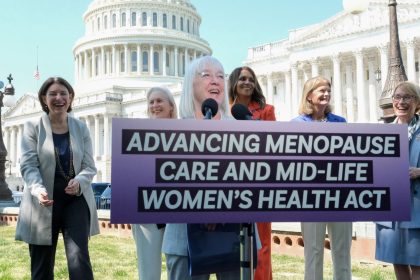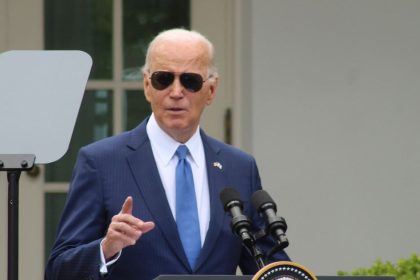House Subcommittee Holds Critical Hearing on Surprise Medical Bills with Rare Bipartisan Agreement

A robust and important health policy discussion occurred on Capitol Hill yesterday with lawmakers on both sides of aisle appearing to reach a rare consensus on the problems of countless Americans who have been surprised with expensive out-of-network medical bills.
The House Education and Labor Subcommittee on Health, Employment, Labor, and Pensions, chaired by Congresswoman Frederica Wilson, D-Fla., engaged in a bipartisan discussion as policy experts issued compelling testimony and the members engaged in constructive dialogue.
This is a rare sight in Washington’s partisan atmosphere, particularly around the pitched stakes of healthcare where the dominant discussion and drama has centered around the very existence of the 2010 Affordable Care Act, signed into law by president Obama.
But in this quiet subcommittee hearing room in the Rayburn House Office Building, surprise medical bills, also known as balance billing, were the topic of discussion with Democrats and Republicans looking to understand the issue and how to improve healthcare for their constituents.
The issue has been covered recently in great detail over the last year by Vox’s Sarah Kliff, who reported on San Francisco woman Nina Dang and Austin man Scott Kohan, with both stories retold by Chair Wilson in her opening statement.
Nina Dang was involved in a severe bicycle accident on a San Francisco street. A bystander called an ambulance that took her to the nearby Zuckerberg General Hospital.
Before Dang knew it, doctors had done X-rays and scans and put her broken arm in a splint, and then sent her on her way. A few months later, she was hit with a $20,000 medical bill because the hospital – which she did not choose – was an out-of-network facility.
Scott Kohan was violently attacked late at night in Austin, Texas. With no recollection of the previous night’s events, he woke up in an emergency room with a broken jaw, throbbing headache, and a series of staples in his head. Despite his pain, his first thought was to check his phone to ensure he was in an in-network hospital — he was.
Yet, months later, Scott received a surprise medical bill for nearly $8,000. Despite the emergency room being in-network, the oral surgeon was not.
These stories set the backdrop for the testimony and discussion that followed.
Christen Linke Young, a fellow at the USC-Brookings Schaeffer Initiative On Health Policy, discussed private insurance, access to coverage, and the intersection between state and federal policy, making the case that surprise out-of-network bills are inherent market failures.
Ilyse Schuman, senior vice president for Health Policy at the American Benefits Council, testified on the perspective of large employers.
Frederick Asasi, executive director for Families USA, highlighted the devastating impacts of surprise billing on families and consumers, and made a compelling case for why this is so important to fix.
“People across this nation should not have to live in fear of getting sick and facing a sudden, crippling financial burden,” he said. “And, yet, this what so many American families experience every day. In fact, a larger percentage of the population actually fear medical bills from a serious illness more than the serious illness itself.”
And finally, professor Jack Hoadley of Georgetown University’s Health Policy Institute, described innovative solutions from states that have tackled this issue head-on.
In fact, states have already taken bipartisan action against surprise billing, including New York, New Hampshire, Connecticut, New Jersey, Maryland, Illinois, Oregon, California, and Florida.
However, today’s hearing made clear that only Congress can fully solve the financial distress caused by surprise medical bills.
As Representative Wilson remarked, surprise billing is not rare, with up to 57 percent of people report having been a victim of surprise medical billing while 70 percent of people who have received a surprise bill did not know they were out of network at the time.
These numbers illustrate a problem that needs a bipartisan solution in order protect Americans.
Subcommittee ranking member Representative Tim Walberg, R-Mich., remarked that surprise medical billing “…Understandably causes frustration for individuals who thought they did everything correct. It can also cause a high degree of uncertainty and stress for workers and families as they try to find the money to pay for the health care service they believed would be handled by their insurance.”
Concluding his opening statement with an ode to bipartisanship, Representative Walberg noted that “Committee Republicans are committed to pursuing policies that lower costs, expand choice, and end surprise billing for insured individuals.”
However, the perspective of physicians was conspicuously absent from the hearing’s witnesses, with Representative Phil Roe, R-Tenn., offering the only perspective. An obstetrician by training and one of the only doctors assigned to the subcommittee, he cautioned that although surprise billing must be fixed, benchmarking these bills to Medicare costs, as some have suggested, is inherently unfair to physicians and providers.
He noted further that the solution must be solution that is palatable to all parties — patients, providers, hospitals, and employers.
Envision, a leading national provider of emergency medicine services to hospitals, free-standing emergency care facilities and urgent care facilities, has been at the forefront of confronting the issue of surprise gaps in health insurance coverage.
“The current healthcare reimbursement system is complicated and outdated, and it often leaves patients confused by their medical bills,” said Bob Kneeley, Senior Vice President of Government Affairs at Envision Healthcare. “To improve the healthcare experience for patients, there must be structural changes system wide. Envision supports bipartisan efforts to improve the insurance marketplace and the reimbursement process and is committed to working with all stakeholders to drive solutions that support both patients and physicians. Currently, more than 90 percent of the care we provide comes from in- network agreements.”
But through the course of the hearing and ensuing discussion, it was clear that the members are interested in working together to find solutions. Too many families are at the mercy of timing and chance when confronted by health emergencies.
























